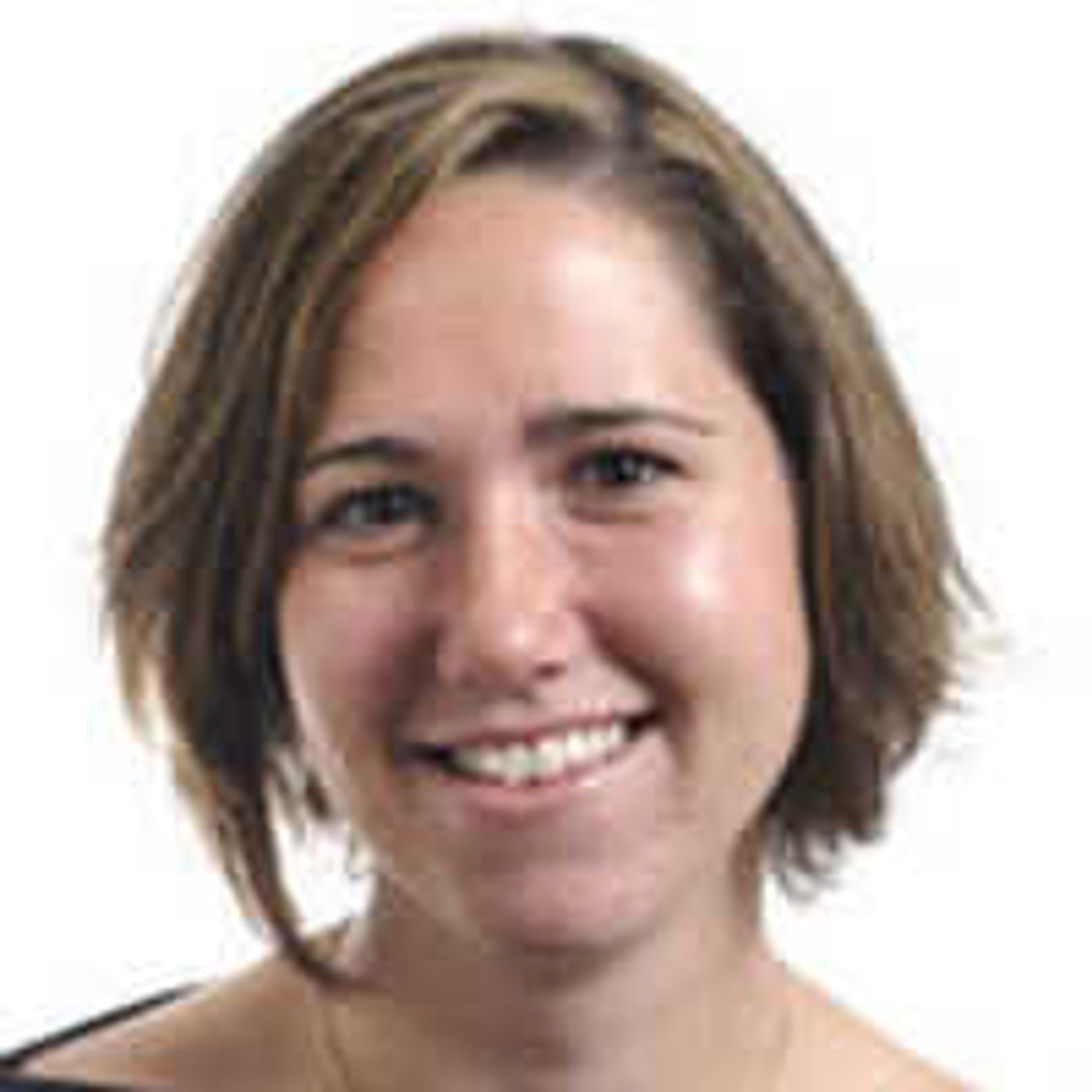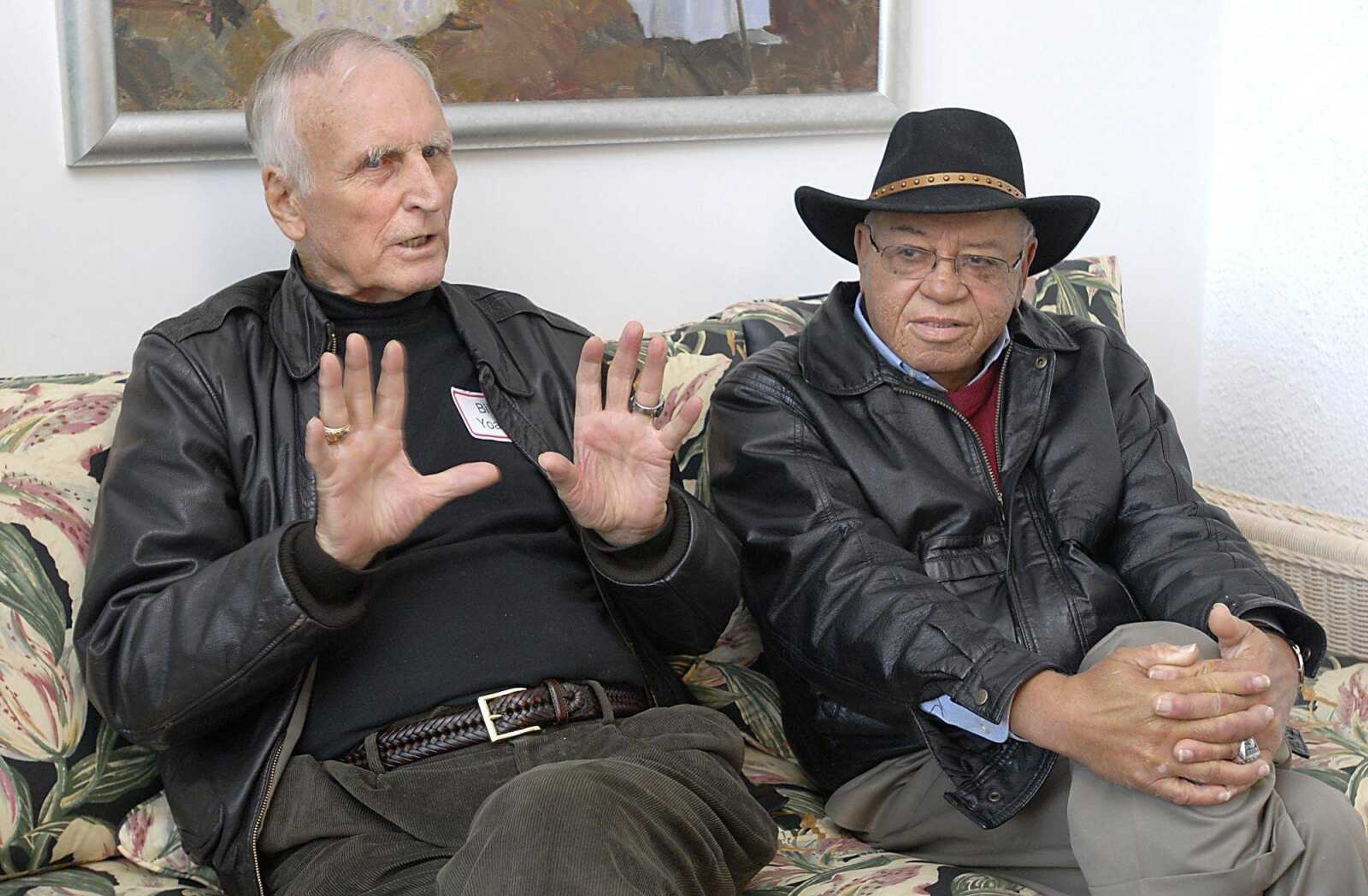~The coaches reminisce on respect and equal rights
See video of "Remember the Titans" coaches
How realistic was the movie?
HERMAN BOONE: They changed some things but not too many things. And we could sit here and talk about the individual things that they changed, but I'd rather talk about the positive things that they taught; that the movie taught the world.
This movie is about some incredible young people in Alexandria who took a chance themselves by simply learning to talk to people who did not look like them, who did not act like they acted and thereby learning to accept the soul of an individual rather than reject anybody based on the color of their skin. It's not about football.
BILL YOAST: How much was it true? I think it followed a path and the path that it followed was true. It followed pretty much a true path of people being upset, very volatile and upset about what was going on not just about the football team, but what was going on in the community. It followed that pretty much so.
And they threw the football in there because I think the football helped bring the community, the school together simply because they were winners. And it wasn't easy to become a winner. And I think the storyline was not about a team that got together and won a state championship. It's about a group of people, how they came together, some of the problems they had and it had a lot to do with leadership, diversity, teamwork and so to carry that story out, I think they followed pretty much true of what we did.
SE: When you two first met, what was your first conversation like?
YOAST: I've still got a lump right here ...
When we first came together Coach Boone had been in North Carolina and very successful. He'd been winning down there all along. When he first came up he knew his football and I knew that. He came up and brought an offense that was just outstanding and I respected the man because of what he had done. There was no animosity.
We had a lot of things besides just our differences, and we took care of our differences pretty good, I think, and our big job was taking care of other people's differences. But we were never at odds.
SE: How did you encourage the boys to talk?
BOONE: We taught togetherness, we taught respect. I can vividly remember I told them one day, "I don't care if you don't like each other. Heck, I don't like half of y'all. But you will respect each other."
And that respect that they came to do for and with each other became the ultimate glue that bound that team together, nothing else.
YOAST: I think what Coach Boone did, and the other coaches too --I mean we didn't do it alone, we had other coaches working with us -- was put them together in places besides just the football field; do things together.
The principal had them paired off walking the halls with their jerseys on. Put us together on projects around the city doing things, being seen. In other words, he told them what they did off the field was just as important as what they did on the field and this is where they started to come together.
So that they learned to live together, not just play together.
BOONE: When kids get together and learn to talk to each other they find out that they had more in common than they had differences. And that, in lies the true meaning of diversity you see: you as an individual. Not the color of your skin but who you are as an individual, And that, I believe, is what the Titans came to believe.
SE: How far do you think the country has come in terms of equal rights?
YOAST: I'll put it this way: If you looked at it like a bell and I think back then, maybe 50 or 60 percent of the people were in favor of equal rights. That left 50 percent of the people who were against it.
I think today that bell would look like maybe 80 and 20, or 60 and 40 percent.
We've come that far. We've still got people who don't like what's going on. I don't think they're as obvious.
That's what we're here for. Trying to close that gap.
BOONE: I think we've taken two steps forward and three steps backward. It's turning out now I think to be the haves don't want the have-nots catching up with them.
You can't stop me from sitting beside you on an airplane anymore.
You can't stop me from drinking from the same fountain anymore, sleeping in the same hotel or eating in the same restaurant. But, gee, you can build your house so far away from me that we can't possibly come together. We work together every day but when 5 o'clock comes you go to the suburbs and I'm left in the heat of the inner city.
SE: What can we do to bring people together?
YOAST: I think what's going on right now, the election. We've got an African-American and a lady. Simply by them coming together and talking is exactly the way it starts. To get them together and talk even though they disagree, they're learning something and hopefully out of it will come respect for each other and for people who are on this side or this side. Even though they disagree, they can come together and respect each other. That's what I think we can do, is continue to work. To make people realize we're all human. We all have the same dreams. We all have the same rights. We deserve the same rights. We deserve honesty. We deserve fairness.
BOONE: Well, Bill, that's OK for the candidates. They have no choice but to say that. But Joe Blow in our communities sit at coffee shops in the morning and say, "I don't know why I'm agin it, I'm just agin it."
What are we going to do for our communities to come together? We're going to have to find our own hope in our own communities by finding some way to come together in our own communities. What is it this community does for this community to bring about unity? Is there any particular day that this community brings about a Cape Girardeau day? Where all the community comes together and brings their food and bring their beliefs and bring their character and sit down and talk.
You can't legislate love. But you can create situations where people can get to understand each other's culture, can get to talk to people and share their spears of experience with each other. And thereby that tends to bring a community together better than anything else. You do that through leadership.
charris@semissourian.com
335-6611, extension 246
Connect with the Southeast Missourian Newsroom:
For corrections to this story or other insights for the editor, click here. To submit a letter to the editor, click here. To learn about the Southeast Missourian’s AI Policy, click here.









